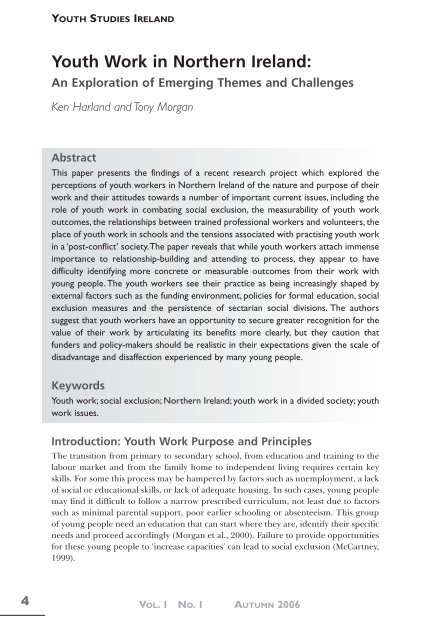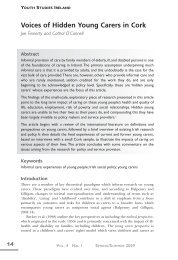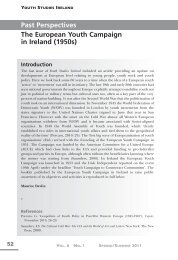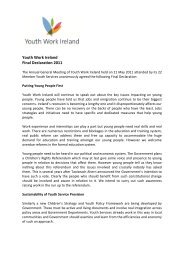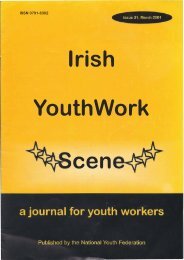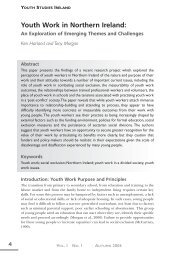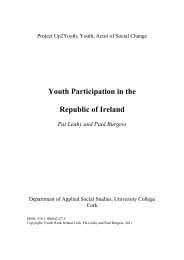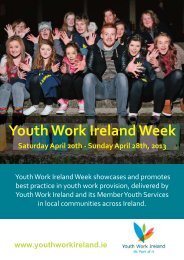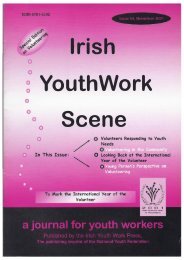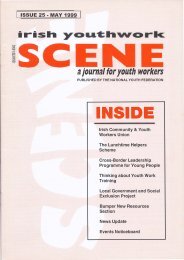Download full edition - Youth Work Ireland
Download full edition - Youth Work Ireland
Download full edition - Youth Work Ireland
You also want an ePaper? Increase the reach of your titles
YUMPU automatically turns print PDFs into web optimized ePapers that Google loves.
YOUTH STUDIES IRELAND<strong>Youth</strong> <strong>Work</strong> in Northern <strong>Ireland</strong>:An Exploration of Emerging Themes and ChallengesKen Harland and Tony MorganAbstractThis paper presents the findings of a recent research project which explored theperceptions of youth workers in Northern <strong>Ireland</strong> of the nature and purpose of theirwork and their attitudes towards a number of important current issues, including therole of youth work in combating social exclusion, the measurability of youth workoutcomes, the relationships between trained professional workers and volunteers, theplace of youth work in schools and the tensions associated with practising youth workin a ‘post-conflict’ society.The paper reveals that while youth workers attach immenseimportance to relationship-building and attending to process, they appear to havedifficulty identifying more concrete or measurable outcomes from their work withyoung people. The youth workers see their practice as being increasingly shaped byexternal factors such as the funding environment, policies for formal education, socialexclusion measures and the persistence of sectarian social divisions. The authorssuggest that youth workers have an opportunity to secure greater recognition for thevalue of their work by articulating its benefits more clearly, but they caution thatfunders and policy-makers should be realistic in their expectations given the scale ofdisadvantage and disaffection experienced by many young people.Keywords<strong>Youth</strong> work; social exclusion; Northern <strong>Ireland</strong>; youth work in a divided society; youthwork issues.Introduction: <strong>Youth</strong> <strong>Work</strong> Purpose and PrinciplesThe transition from primary to secondary school, from education and training to thelabour market and from the family home to independent living requires certain keyskills. For some this process may be hampered by factors such as unemployment, a lackof social or educational skills, or lack of adequate housing. In such cases, young peoplemay find it difficult to follow a narrow prescribed curriculum, not least due to factorssuch as minimal parental support, poor earlier schooling or absenteeism. This groupof young people need an education that can start where they are, identify their specificneeds and proceed accordingly (Morgan et al., 2000). Failure to provide opportunitiesfor these young people to ‘increase capacities’ can lead to social exclusion (McCartney,1999).4 VOL. 1 NO. 1 AUTUMN 2006


